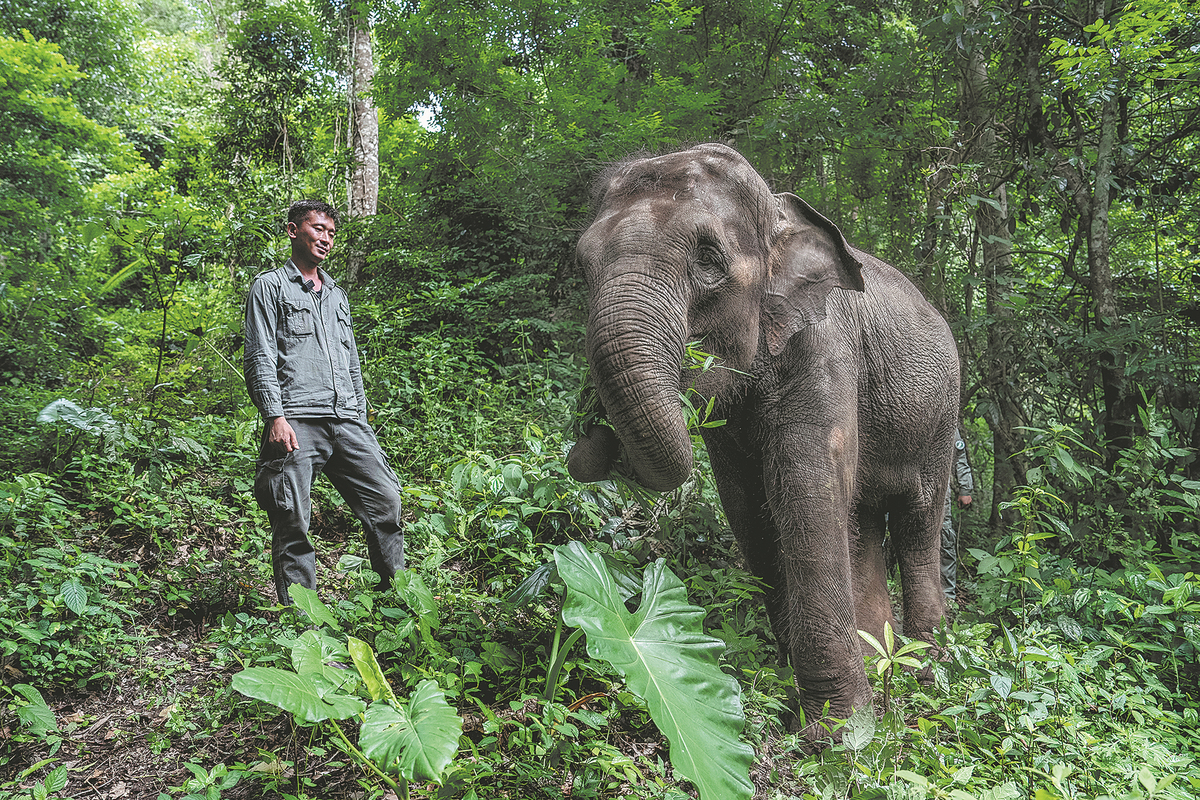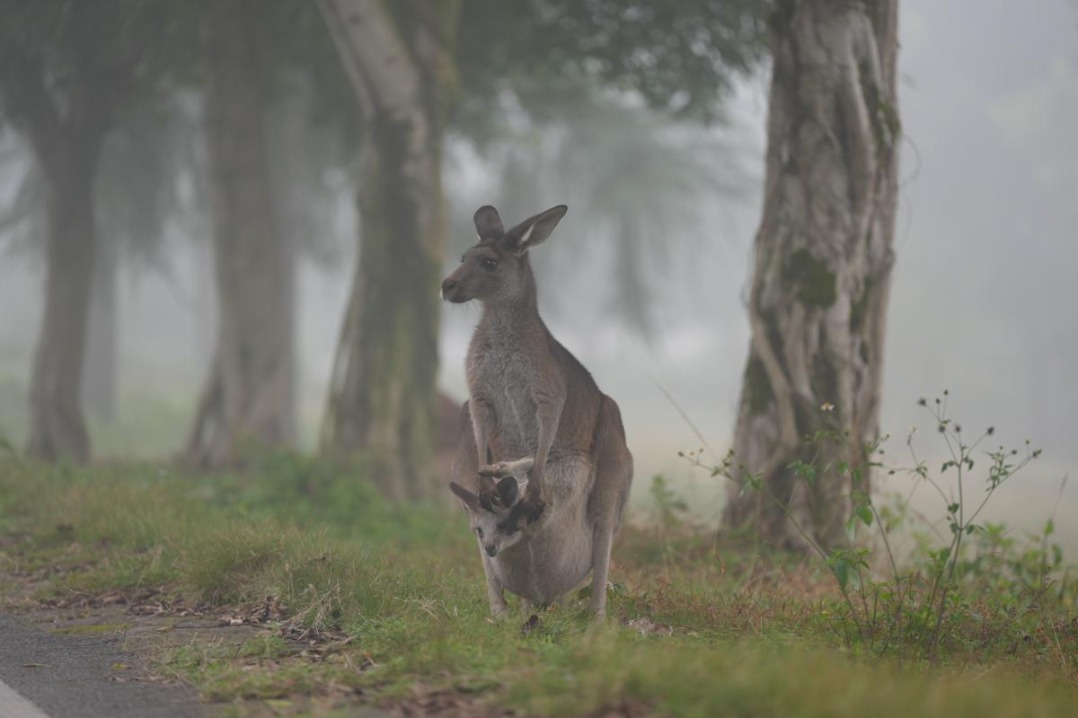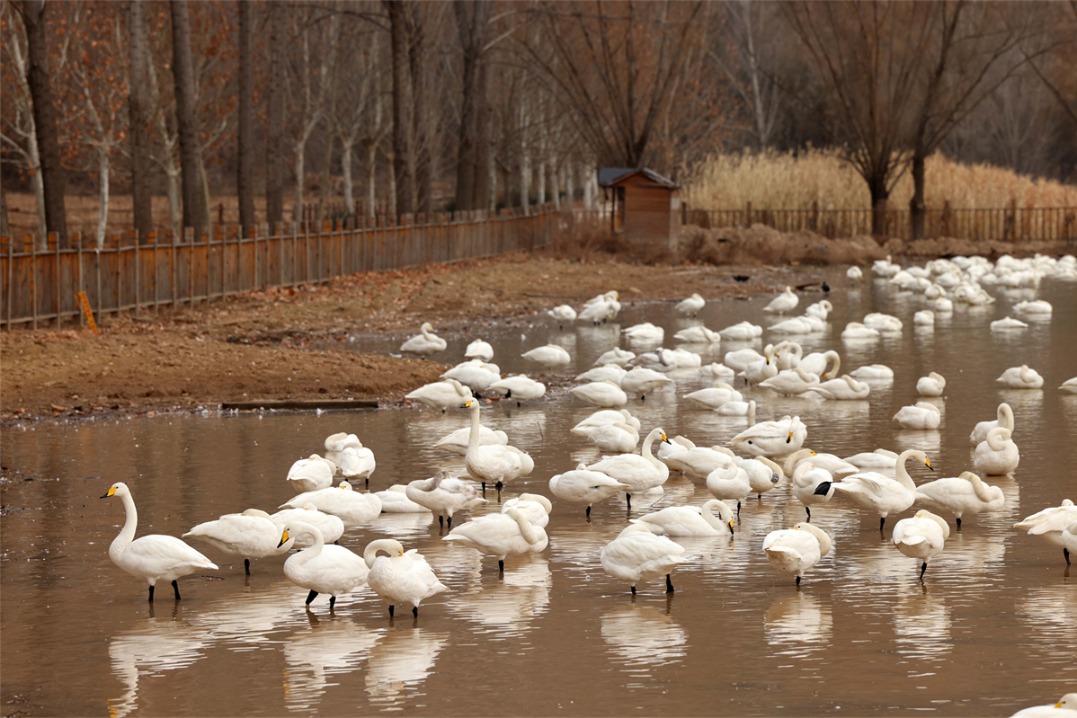Province contributes to global biodiversity conservation


This partnership has established a 200,000-hectare joint Asian elephant protection area and implemented over 40 conservation measures, allowing elephants to safely travel between the two countries.
"The ability of Asian elephants to freely traverse the border indicates excellent ecological protection in the region. Also, cross-border conservation is crucial for protecting species, ensuring natural interactions between Asian elephants in Yunnan, China, and Laos, and preventing genetic degradation," said Chen Fei, director of the Asian Elephant Research Center at the National Forestry and Grassland Administration.
"Our team has conducted surveys and monitoring of populations and habitats in the cross-border area, which shows a healthy and growing elephant population and improving habitat quality," Chen said. "Our next step is to expand the joint protection area and strengthen the collaboration efforts."
Yunnan's commitment to biodiversity extends beyond animal conservation. In plant conservation, Yunnan collaborates with countries involved in the Belt and Road Initiative, offering financial and technical support to tackle biodiversity challenges together.
The China-Uzbekistan Global Allium Garden Kunming Center serves as a prime example of how Yunnan is using its own resources to support global biodiversity conservation.
"The commonly known scallions and onions are just a small part of the allium genus. There are nearly 1,000 species of allium worldwide, some of which are highly ornamental and produce large flowers. Additionally, we can extract valuable compounds from these plants," said Niu Yang, deputy director of the Kunming Botanical Garden at the Kunming Institute of Botany, Chinese Academy of Sciences.
"Central Asia and southwestern China have a rich diversity of allium species. Establishing the Global Allium Garden in China and Uzbekistan leverages our unique geographical advantages," said Niu.
The China-Uzbekistan Global Allium Garden has two centers — the Kunming Center at the Kunming Botanical Garden, and the Tashkent Center at the Institute of Botany of the Uzbekistan Academy of Sciences. The Kunming Center opened in April 2018, and the Tashkent Center began construction in May 2018.
In April 2019, at a State Council Information Office conference, the construction of the China-Uzbekistan Global Allium Garden was highlighted as an important demonstration platform for technological support in the Belt and Road Initiative.
According to Niu, the two centers have collected and conserved around 200 allium species, making the garden a crucial base for the conservation and research of allium species, particularly wild ones.
Beyond specific projects, Yunnan is collaborating with Southeast Asian nations to help them assess their local biodiversity resources and train local professionals, boosting regional biodiversity research.
The Southeast Asia Biodiversity Research Institute was established in 2015 at the Xishuangbanna Tropical Botanical Garden, CAS. So far, it has conducted many joint scientific expeditions with Southeast Asian nations, discovering over 800 new species of plants and animals in the region.
From 2016 to last year, it had enrolled 143 students from Southeast Asia, helping these nations boost their capability in biodiversity research.
Contact the writers at yangran1@chinadaily.com.cn
- US defense policy act fuels Taiwan tensions
- New Year holiday to bring peak in travel
- China's top 10 sci-tech news events unveiled
- Over 700 generative AI large model products complete filing in China
- Beijing accuses Lai of 'kowtowing' to US
- Hong Kong's global standing boosted with increasing presence of intl organizations: justice secretary





































